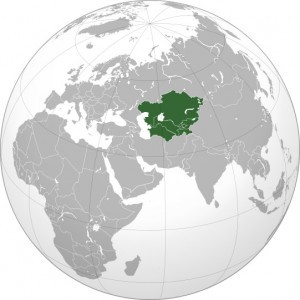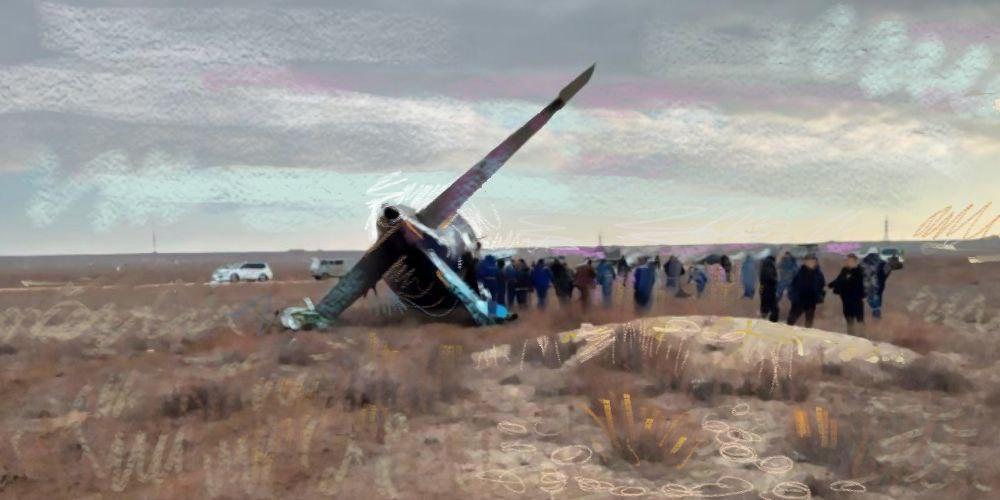BISHKEK (TCA) — The Times of Central Asia presents to its readers Stratfor’s Global Intelligence, a weekly review of the most important events that happened in the world — from Europe to Middle East to Russia to Central Asia to Afghanistan to China and the Americas.
The Week That Was
Brexit Vote Looms
As the June 23 Brexit vote approaches, the two pillars of the European Union are doing everything they can to convince British voters that they would regret abandoning the European project. Leaks out of Paris and Berlin have signaled to London that if the United Kingdom decides to leave, the bloc is not going to allow continued access to the common market in the manner of Norway and Switzerland. This posturing is to be expected as the core European powers try to intimidate British voters into sticking to the status quo and also undermine Euroskeptic forces. In the coming days it will be hard to tell how voters will go based on the polls, which remain within the margin of error and are unlikely to move out of it. Many voters are still undecided. And polls can be deceiving — a recent London School of Economics study found that polls tend to underrepresent people who support the status quo and overrepresent people who want change.
Russo-German Advances
Even as it tries to influence the Brexit referendum, Germany is looking east and trying to advance commercial negotiations with Russia. Berlin has been taking a lot of heat, particularly from Eastern Europe, over its support for the Nord Stream II pipeline project. This natural gas pipeline would have a capacity of 55 billion cubic meters and create a second direct link between Russia and Germany across the Baltic Sea, circumventing Ukraine and Eastern Europe. Germany’s eastern neighbors fear that this project will make it easier for Moscow to punish them with natural gas cutoffs because Germany would no longer be cut off in the process.
From Berlin’s perspective, however, the European Union has already gone a long way in depoliticizing Europe’s natural gas market by constructing natural gas interconnectors and pipelines that diversify transit. Berlin also looks to the EU Third Energy Package, which splits the ownership of natural gas transiting a pipeline from the owners of the pipeline, loosening Russia’s grip. To try and assuage concerns over the project, Germany formalized three conditions for Berlin’s approval of Nord Stream II: the pipeline must adhere to German regulations, must not impact Ukraine’s pipelines and must not limit Eastern European natural gas supplies. This is unlikely to put Slovakia, Poland, Hungary and Ukraine at ease, but it does show Germany’s efforts to push this deal forward in a broader initiative to repair its relationship with Russia.
Russia’s Syrian Game Continues
Russia is once again using Syria as a way to negotiate with the United States. We have been watching closely as Russia has been reinforcing a Syrian push toward the town of Tabqa on Lake Assad. If the Syrian forces succeed in taking Tabqa, the Islamic State would be cut off from its positions in northern Aleppo. Loyalists may also gain a springboard for an eventual drive to Raqqa, the self-declared capital of the Islamic State. At the same time, the U.S.-backed Syrian Democratic Forces are advancing southward toward Raqqa as well.
Russia made it clear this week that it is in the United States’ best interests to coordinate with Russia on this offensive. The United States has managed to play it cool thus far, but we could see Russia force its way into another round of talks about deconflicting efforts. Moscow will use these to try and push Washington on other key issues, such as sanctions easing and the NATO buildup in Europe. Ankara is meanwhile sitting tight as the Syrian Democratic Forces are encircling Manbij near the Turkish border. For now, Turkey and the United States have an understanding that Kurdish People’s Protection Units (YPG) will be kept in check, but Turkey is getting nervous and will be taking steps to try and ensure that the Manbij power vacuum does not get filled by the Kurds.
Saudi Reform Targets
Saudi Arabia unveiled a number of ambitious targets in its National Transformation Plan, which hopes to reform the Saudi economy to rely less on oil. Among the more ambitious targets was the creation of more than 450,000 jobs in the private sector by 2020 and raising non-oil revenue from 163.5 billion riyals to to 530 billion riyals by 2020. Saudi Arabia has a pressing need to reduce public sector jobs, but that will be a painful adjustment given that two-thirds of the Saudi labor force enjoy the benefits of state employment.
Labor Minister Mufrej Al-Haqbani clarified that the plans for Vision 2020 and Vision 2030 do not include a strategic reduction in the level of foreign labor within the country, though there is discussion of an an income tax on expatriates. Oman and Kuwait introduced new corporate income tax rates this year of 15 percent and 10 percent, respectively, for companies with foreign ownership and local ownership. A graded tax on remittances is also in discussion, something up for consideration in Kuwait, the United Arab Emirates and Oman as well.
Nigerian President Gets Treatment
The mystery over Nigerian President Muhammadu Buhari’s cancelled meetings was cleared up early in the week when he announced he was going on a 10-day trip to London to treat a persistent ear infection. This is believed to be related to Meniere’s Disease. In the meantime, the government has initiated negotiations with Niger Delta militants and has withdrawn military forces from the area to facilitate the dialogue. Based on our conversations with various stakeholders in the Niger Delta, these efforts are unlikely to have much of an impact in reducing militant attacks that are exacerbating Nigeria’s pinch in oil revenues. The Niger Delta Avengers and affiliate groups are continuing their attacks and maximizing their demands, knowing that the government is following a piecemeal approach with insufficient resources to bribe its way through a cessation of hostilities.
Full Articles
Surveying Colombia’s Criminal Landscape
The Colombian government and the Revolutionary Armed Forces of Colombia (FARC) are progressing toward a peace deal that is poised to end more than five decades of armed conflict. Over the next few months, the dialogue is expected to continue, advancing on the topics of a final cease-fire and the demobilization of the militants. A peace agreement with the FARC would significantly reduce politically motivated violence in the country. But criminal violence and illegal activities, including drug trafficking and extortion, will continue to pose isolated, localized risks to residents and foreign visitors in Colombia. Even as security improves in the country as a whole, areas of prevalent criminal activity will remain risky for the individuals and businesses operating there.
Campaign Calculations Bring the EU to a Halt
Campaign season is fast approaching in France and Germany, Europe’s biggest political and economic heavyweights. As political parties in both countries maneuver to secure victories in their respective general elections, set for 2017, consensus will become increasingly difficult to find on the Continent. Paris and Berlin will each present new proposals to knit the European Union closer together, but with Euroskepticism rising on both sides of the Rhine, agreements to that effect will be tough to achieve. Stalled cooperation between the Continent’s largest players will do little to help Europe reverse its fragmentation and face its challenges — especially if France and Germany’s commitment to keeping the European Union united begins to fade.
EU, Turkey: In Search of a Lasting Migrant Deal
As conflict throughout the Middle East and North Africa continues unabated, the influx of migrants from the war-torn region is putting more and more strain on Europe. Hoping to lighten its load, the European Union has turned to Turkey for help. According to the tentative deal struck between the two on March 18, Brussels will give Ankara an extra $3 billion in aid, accelerate its EU membership talks and ease visa restrictions for Turkish citizens by the end of June. In return, Ankara has agreed to keep migrants from passing through its borders and into the Continent and to take back any migrants who traveled to Europe after the deal’s implementation March 20. Finally, to discourage illegal immigration from Syria, the parties have worked out a system whereby the European Union will resettle one legal Syrian refugee from Turkey for each Syrian non-refugee deported from Greece.
Russian Influence Fades in the Baltics
Competition between Russia and the West over the Baltic region is not new. Estonia, Latvia and Lithuania occupy a strategic location in the flat borderlands of northeastern Europe, making them attractive to powers with regional ambitions. Attempts to control them began in the Middle Ages, with a period of Scandinavian domination in which Sweden and Denmark took prominent roles. By the end of the 18th century, the Baltic states were swept into the growing Russian Empire. Their subordination was briefly broken by a short period of independence in the early 20th century, before Nazi Germany invaded during World War II. Not long after, the region was annexed into the Soviet Union. After regaining independence in 1990 just prior to the Soviet Union’s collapse, the three nations entered a new phase: integrating with the West. It culminated with each of the Baltic states joining the European Union and NATO in 2004.
A State of Paralysis in Japan
Political and economic constraints at home and abroad have brought Tokyo to a standstill, unable to enact the policies it needs. This paralysis reflects, in part, the limited options available to solve the country’s long-term economic problems. But it also is driven by the interests of Prime Minister Shinzo Abe’s administration to bolster his ruling Liberal Democratic Party (LDP) in July elections for the upper house of the Diet. Those factors have prompted a series of delays and avoidance of policy decisions that underscore the difficulties in tackling Japan’s economic woes in a charged political environment.
The Week Ahead
Saudi Prince in the United States
Saudi Deputy Crown Prince Mohammed bin Salman is expected to travel to the United States this week, first to New York then Washington before potentially visiting Los Angeles. As the face of Saudi Arabia’s Vision 2030 plan, bin Salman will focus his trip on attracting investment to Saudi private industry, including an effort to convince major U.S. arms manufacturers to set up shop in the kingdom to allow Saudi Arabia to build up an indigenous defense industry.
St. Petersburg Forum
Russia will hold its St. Petersburg International Economic Forum (SPIEF) from June 16 to June 18. Moscow promotes this forum as its version of Davos. In recent years, Russia companies have used the forum to sign hundreds of agreements worth tens of billions of dollars with foreign firms. In the past two years, participation by European and U.S. firms has fallen off due to tensions between the West and Russia. This year, Russia claims that European firms are renewing their interest. Moscow is highlighting one of its most important Europeans relationships by allowing Italy to co-host the SPIEF. Italian firms will have their own venues to promote future projects in Russia, as well as opportunities around the world.
Italian Prime Minister Matteo Renzi will join Russian President Vladimir Putin at SPIEF — the first major European leader to attend the forum since 2013. European Commission chief Jean-Claude Junker will also meet with Putin much to the chagrin of Poland and the Baltic States who see the visit as part of plans to ease sanctions on Russia. Moscow has accused the United States of pressuring European governments to dissuade businesses from attending the forum. However, many major U.S. firms are rumored to be attending, including PricewaterhouseCoopers, Boston Consulting Group, Schlumberger, Intel, ExxonMobil and Boeing.
Merkel in China
German Chancellor Angela Merkel will visit China on from June 12 to June 14 at a time when the German government is trying to fight off Chinese bid for German robotics manufacturer Kuka. Unlike previous visits, which were preceded by expressions of friendship between the two governments, Merkel is under domestic pressure to protect Kuka, which is seen by many Germans as a model of the country’s industrial strength.
French Protests Continue
France will see another week of intermittent protests as the Senate starts the debate over a controversial labor reform. The main protest will take place June 14, when unions have called for a national day of industrial action. In recent weeks the protests have lost momentum, as the government has been making promises to split the unions and the French began to express discontent with the continued strikes. The June 14 strike will happen as the 2016 Union of European Football Associations European Championship is under way across the country, and French authorities are on alert for potential terrorist attacks.
Beijing Hopes for Financial Inclusion
On June 14 U.S.-based MSCI, which provides financial indexes, will release its 2016 Annual Market Classification Review. In this it will likely decide whether or not to include China’s domestically listed “A-shares” in its emerging market indices. China’s inclusion has been discussed for three years now and Beijing has made a concerted effort to address MSCI’s concerns over Chinese investment restrictions and regulations, including restructuring trading suspension rules on both the Shanghai and Shenzen stock exchanges May 27. For China, its goal of inclusion is consistent with China’s broader strategy integrating itself with the international financial community. However, China is going to do that at its own pace and it will not liberalize its financial system so quickly that it causes political reverberations back home. This slow process means that a positive MSCI decision is not a given at this point, though Beijing is hoping for acceptance.









